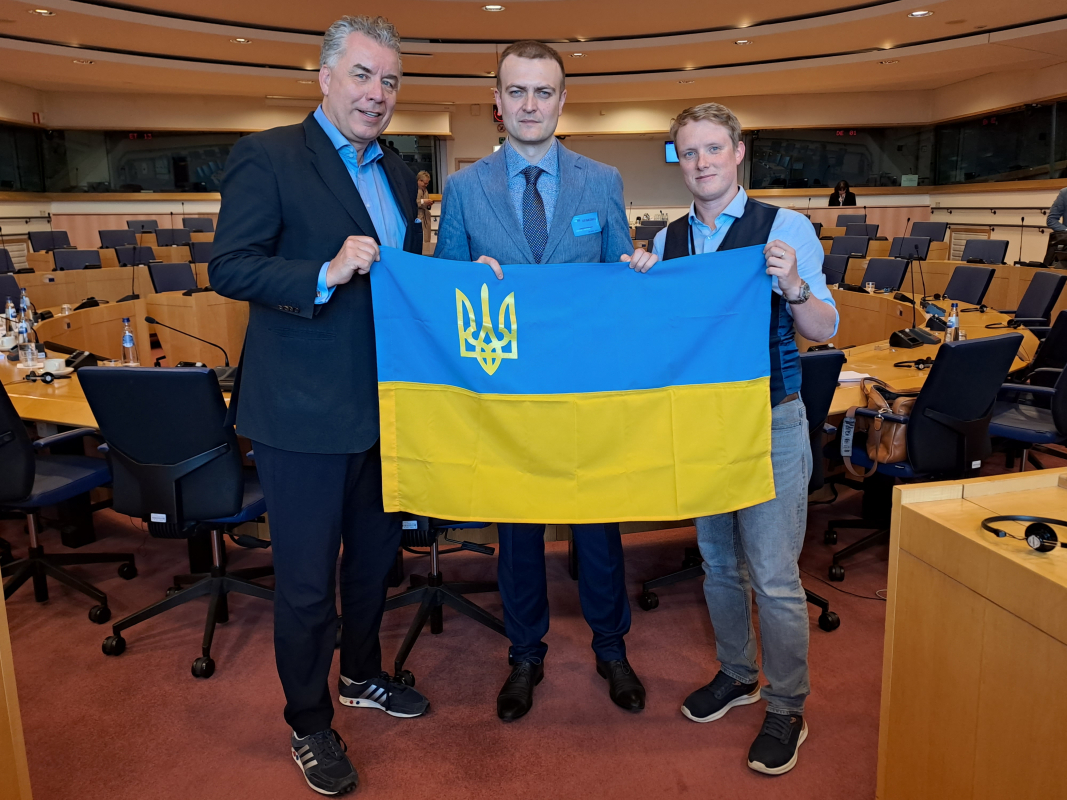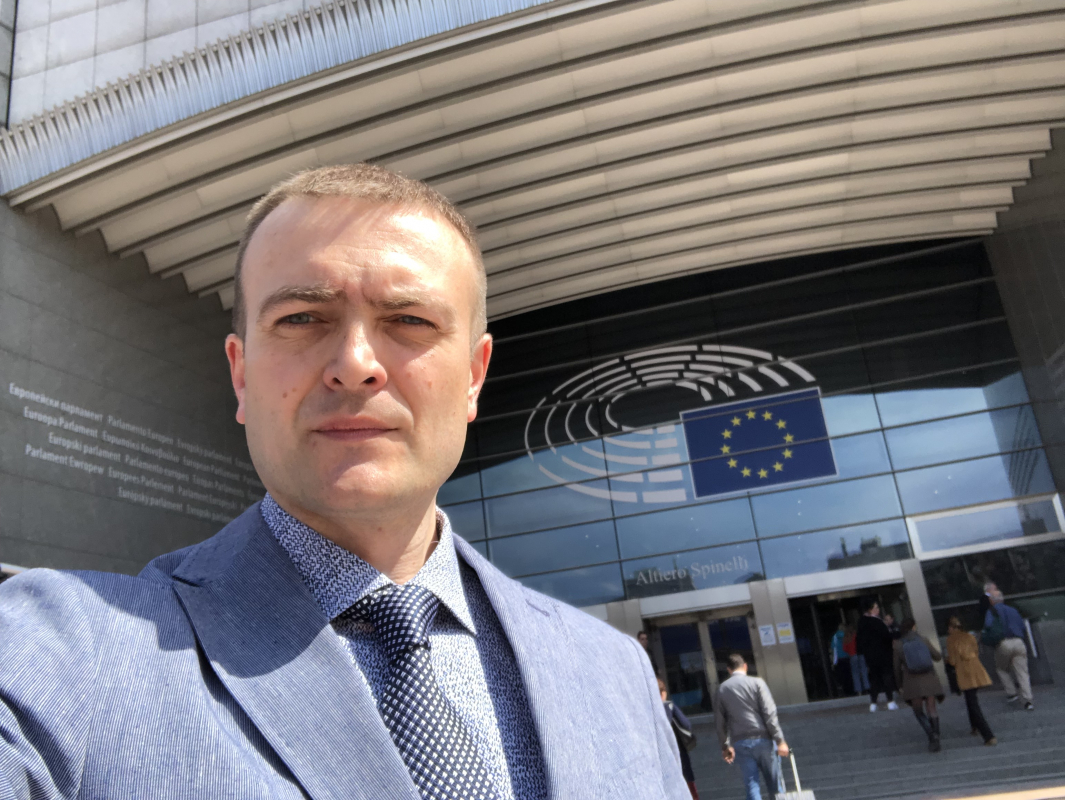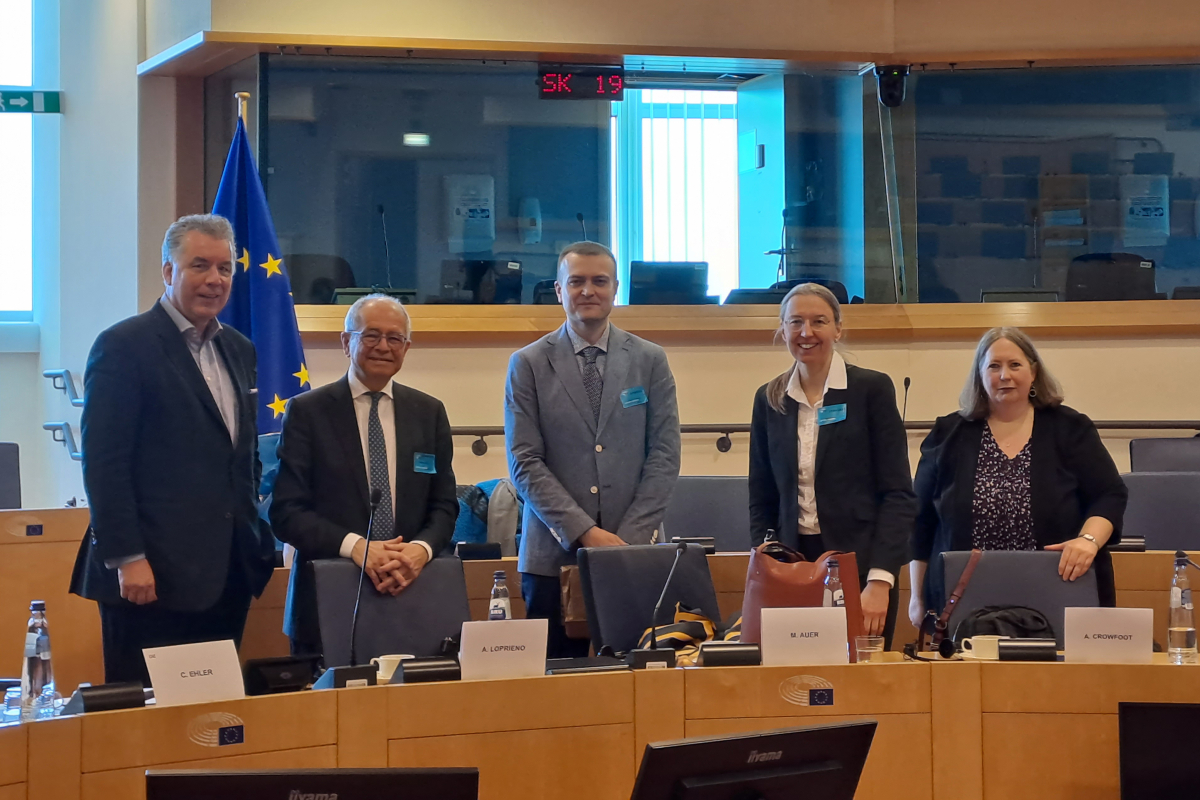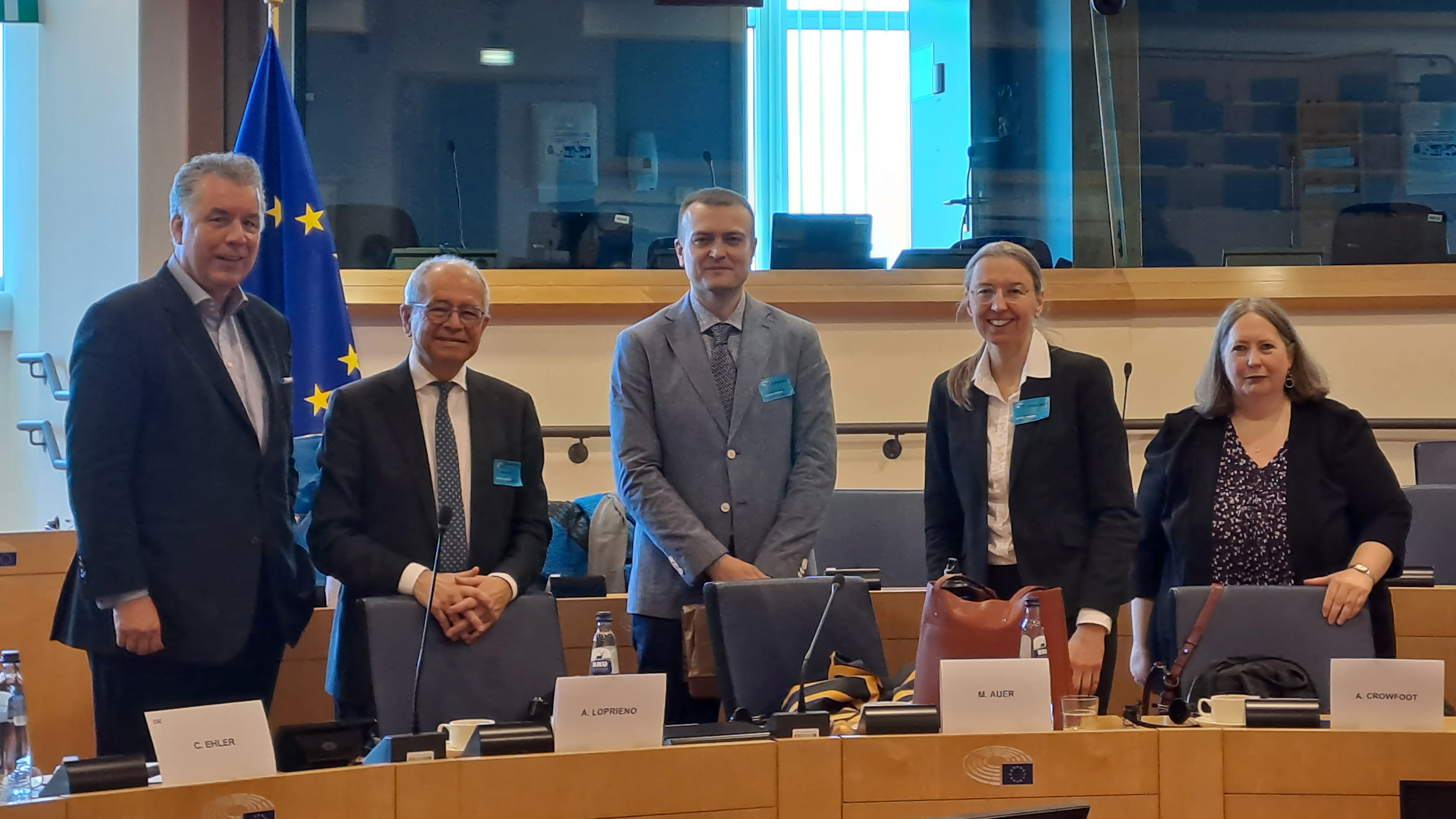On April 27, Oleksandr Berezko, Associate Professor at the Department of Social Communication and Information Activities, Lviv Polytechnic, and President of Eurodoc, took part in the round table on Academic Freedom, Panel for the Future of Science and Technology (STOA), European Parliament, at the invitation of its chairman, MEP Christian Ehler. The event took place in the building of the European Parliament in Brussels and brought together representatives of key European stakeholders in the field of science and education, who discussed the prospects of legal protection of the freedom of scientific research at the European level.
European Parliament’s Panel for the Future of Science and Technology (STOA) aims to provide parliamentary committees and other political actors with independent, high-quality and scientifically unbiased information about the development of science and technology, the opportunities they open up, as well as about the potential risks and ethical nuances. STOA organizes events where politicians, academics and other stakeholders discuss advances in science and technology, focusing on topics of critical importance to society.
STOA has created the European Forum for Academic Freedom, which offers stakeholders a platform to discuss ways to protect academic freedom in Europe. The first STOA round table on Academic Freedom was organized within the framework of this initiative. Its purpose is to exchange opinions with the main representatives of the European research community on the freedom of scientific research. STOA leaders understand that academic freedom as a driver of innovation and a catalyst for knowledge generation is under-defined and under-protected and under attack in many places, including Europe – as evidenced by the recent scandals in Hungary. Below there are some quotes from the participants of the round table moderated by MEP Ehler.
«Academic freedom is very difficult to legislate because it is a ‘moving target.’ (...) Academic freedom in the digital era cannot be considered in the same paradigm as in the analogue» – Prof. Antonio Loprieno (President of ALLEA – European Federation of Academies of Sciences and Humanities).
«Everyone knows that scientific freedom is receding all over the world (...) In the EU, a minimum standard for scientific research can be established, and the Bonn Declaration can become a starting point for the creation of legislation» – Prof. Marietta Auer (Vice President of DFG – German Research Foundation).
«From a holistic point of view and from the point of view of the specifics of the work of universities, it is problematic to separate science and education in the discussion about academic freedom. (...) I ask you to continue the dialogue with universities in order to avoid unwanted consequences in the legal protection of academic freedom» – Amanda Crowfoot (Secretary General of EUA – European University Association).
«We distinguish three elements when we talk about academic freedom: individual right, institutional right and state obligations» – Prof. Kurt Deketelaere (Secretary-General of LERU – League of European Research Universities).
The main theses of Oleksandr Berezko
- Academic freedom should be defined and enshrined in EU legislation, despite the complexity of the issue. Today, the academic community demonstrates an inspiring ability to tackle complex science management challenges (CoARA, the Coalition for Advancing Research Assessment, is a great example), so he’s confident it’s possible.
- Any legislative initiatives in this regard should be as inclusive as possible, particularly with regard to early career scientists, technical research staff (who do not and may never have a degree) and those involved in «citizen science».
- Academic freedom applies to all aspects of «academic life», i.e. not only research, but also teaching and learning. That is why the alignment between the ERA and the EHEA is one of the key tasks.
- Institutional autonomy is important, but it is only a means of ensuring the academic freedom of individual scientists, which, in fact, is the main one.
- Academic freedom is also a responsibility, that is, it involves compliance with general and industry standards, as well as scientific ethics. Open science and reforming the assessment of scientific activity will have a significant positive impact on ensuring academic freedom.
In his speech, Oleksandr once again emphasized that Russia’s invasion is not just a war against Ukraine, but an attack on democracy, human rights, academic freedom, and the very idea of a free world. This thesis is fully shared by Eurodoc.



